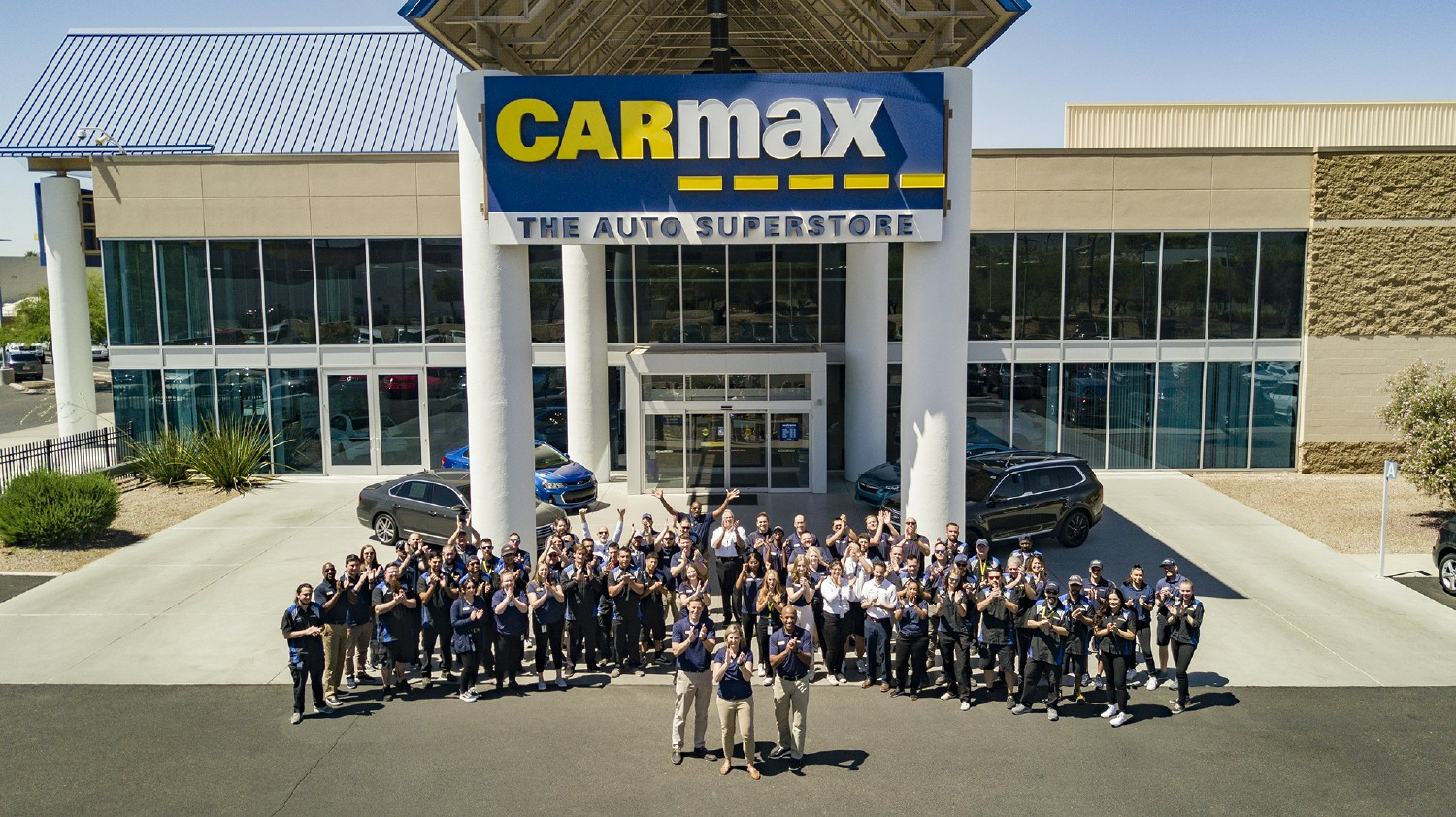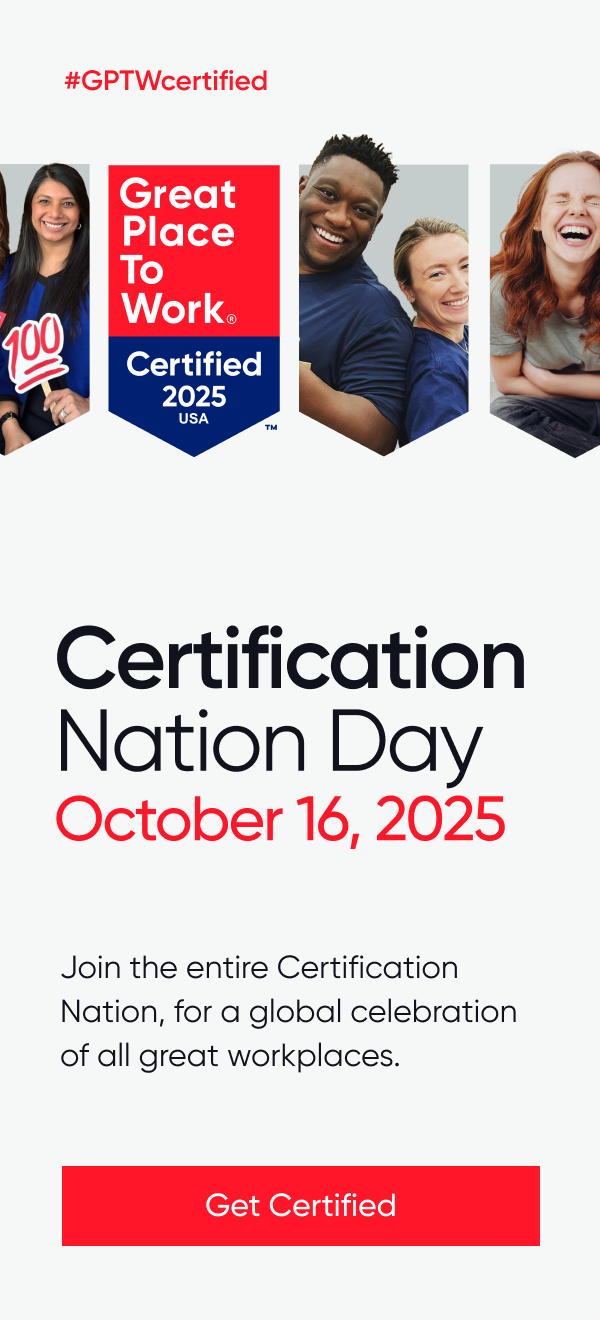Here’s what leaders from these companies on the 2024 Fortune 100 Best Companies to Work For List shared about their strategy for engaging frontline employees.
There are no unimportant jobs — but many roles can go overlooked and underappreciated.
Hourly workers often struggle to feel as connected to the mission of a company or their impact on society. Great Place To Work® research found that less than half of hourly employees (49%) at typical U.S. companies say their work is meaningful.
Salaried workers do better by 11 percentage points with six in 10 saying their work is meaningful. And the gap isn’t trivial. Hourly employees who say their work is more than “just a job” are three times more likely to want to work for their company long-term.
So, what does it look like when companies ensure their hourly workforce feels engaged and included in a meaningful mission? Two great examples come from CarMax and The Wonderful Company, both honorees on the 2024 Fortune 100 Best Companies to Work For® List.
Steve Howe, chief financial officer and executive vice president of human resources at The Wonderful Company joined Diane Cafritz, executive vice president, chief innovation and people officer at CarMax at the For All Summit™ to discuss their strategies.
At CarMax, about 80% of its nearly 30,000 associates are hourly workers and for The Wonderful Company, an agricultural producer of oranges, wines, nuts, and more, about 75% of its 3,000 employees in California's Central Valley are hourly, including seasonal and temporary staff. Both companies have extensive experience with hourly workers.
Join us in Las Vegas April 8-10 for our 2025 For All Summit™ with leaders and culture champions!
Getting the frontline involved
At The Wonderful Company, a program called “Way of Work” intentionally trains frontline employees to identify and solve problems for the business.
“The idea is to give our frontline workers … the people who really know what's going on … the training, the tools, and the ability to identify problems and solve those problems,” Howe explained.
As an example, he shared how workers in the field came up with a solution to quickly change a flat fire on the harvesting machines that weigh thousands of pounds. Flat tires create major delays, and jacking up the machine to change the tire in the field poses real safety concerns.
The solution the frontline employees came up with? Adding a built-in hydraulic pump to each truck that harvesters can immediately deploy to change a tire on the spot.
“We’re the largest nut farmer in the world, so we go to the manufacturer and say, ‘Can you do this?’” Howe said. “And they love it.”
The truck manufacturer is thrilled to have a new feature to market to other buyers. The Wonderful Company has reduced a three-hour wait time to just 30 minutes to replace a flat tire. The whole process is safer — and frontline workers can point to their direct contribution to improve the company.
Recognizing frontline contributions
When your work goes underappreciated and unrecognized, it’s hard to feel like that work matters. At CarMax, a recognition platform is a crucial tool for connecting hourly workers to the greater mission.
“When you log into that platform to give either peer recognition or manager-to-associate recognition, you have to denote which of our four values you are recognizing that associate for,” shared Cafritz.
Recognition has a clear connection to higher levels of innovation across a company. Great Place To Work research found that employees are 2.2 times more likely to participate in innovation and share new ideas when everyone has an opportunity for recognition.
At CarMax, one of its associates found a tool on Amazon to remove dog hair from a car — a common pain point for the team cleaning and detailing a used car before reselling. The new tool quickly caught on across the company, and the employee who helped find the solution has a clear example of their impact on the business.
“That associate had a huge sense of pride by providing that as a company-wide solution,” shared Cafritz.
Tips for engaging hourly workers
Howe and Cafritz both shared some tips for other companies to make hourly work meaningful and connect all employees to the mission of the organization:
1. Employees are paying attention to what captures your focus
Howe spends an hour every month listening to presentations from employees on new ways to improve their work. Even on the projects where there’s nothing for him to approve or move forward, he makes sure those presenting get his full attention.
“It’s just a question of bringing focus,” he shared. “I know that anything that interests my boss fascinates me, and I think most people feel the same way.”
The takeaway: Listening and engaging as a leader is sending a clear signal of how meaningful a topic might be. When you pay attention, you reinforce employees’ sense that their ideas matter.
2. Get buy-in from frontline managers
If you want to change the experience of the hourly employees, consider carefully what their manager will need to create that change.
“It will never ever work if you don’t have buy-in, particularly from frontline managers,” Cafritz said. As an example, when CarMax made changes to its compensation plan for sales consultants, managers suggested a tool was needed to demonstrate how the new plan would work.
For any change affecting hourly or frontline employees, frontline managers are essential resources for troubleshooting and developing communications tools.
3. Keep asking questions
Surveys like the Great Place To Work Trust Index™ offer crucial information about the experience of hourly employees, Cafritz says.
Howe echoed Cafritz on the importance of listening and then took it one step further.
“If you can, instead of asking [employees] and then doing what they tell you to do, just let them do it,” he said. As an example, he points to The Wonderful Company’s program that gives every employee up to a $1,000 to give to a charity of their choice.
“Instead of asking employees: ‘Who do you want us to give money to?’ the employees get to decide who give it to, and we cut the check,” Howe said. If you believe that hourly employees have just as many good ideas as anyone else in the company, a great company puts its money where its mouth is.











